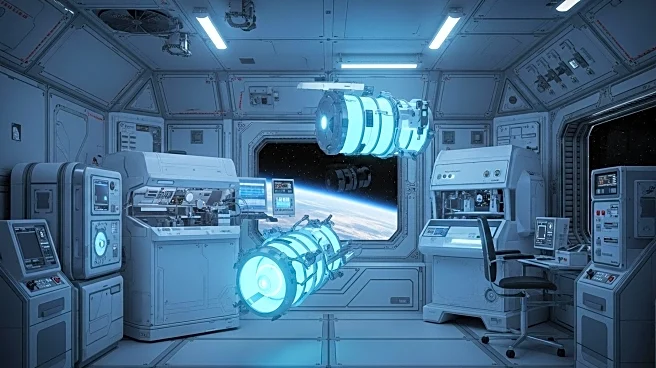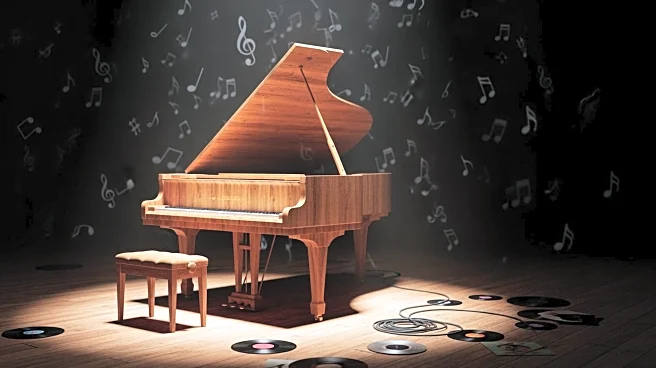What's Happening?
At the 2025 ISS Research and Development Conference, Joe A. Adam from Rensselaer Polytechnic Institute presented the Ring-Sheared Drop (RSD) experiment, which is conducted in the Microgravity Glovebox on the International Space Station (ISS). The RSD experiment aims to advance biophysical science by characterizing proteins relevant to neurodegenerative diseases like Alzheimer's and Parkinson's. The absence of gravity allows researchers to isolate shear-induced aggregation processes that are difficult to observe on Earth.
Why It's Important?
The RSD experiment represents a significant advancement in understanding the mechanisms of neurodegenerative diseases, potentially leading to new therapeutic strategies. By leveraging microgravity, researchers can gain insights into protein behavior that are not possible with ground-based experiments. This research could have far-reaching implications for the development of treatments for Alzheimer's and similar diseases.
What's Next?
The RSD experiment will continue to analyze protein dynamics under varying conditions, with the goal of validating predictive models and informing future microgravity research. The findings from the 2025 campaign will contribute to the development of pharmaceutical and therapeutic strategies for neurodegenerative diseases.
Beyond the Headlines
The use of microgravity for biomedical research highlights the unique opportunities provided by space environments for scientific discovery. The RSD experiment exemplifies the potential for space-based research to drive innovations in healthcare and improve our understanding of complex biological processes.











